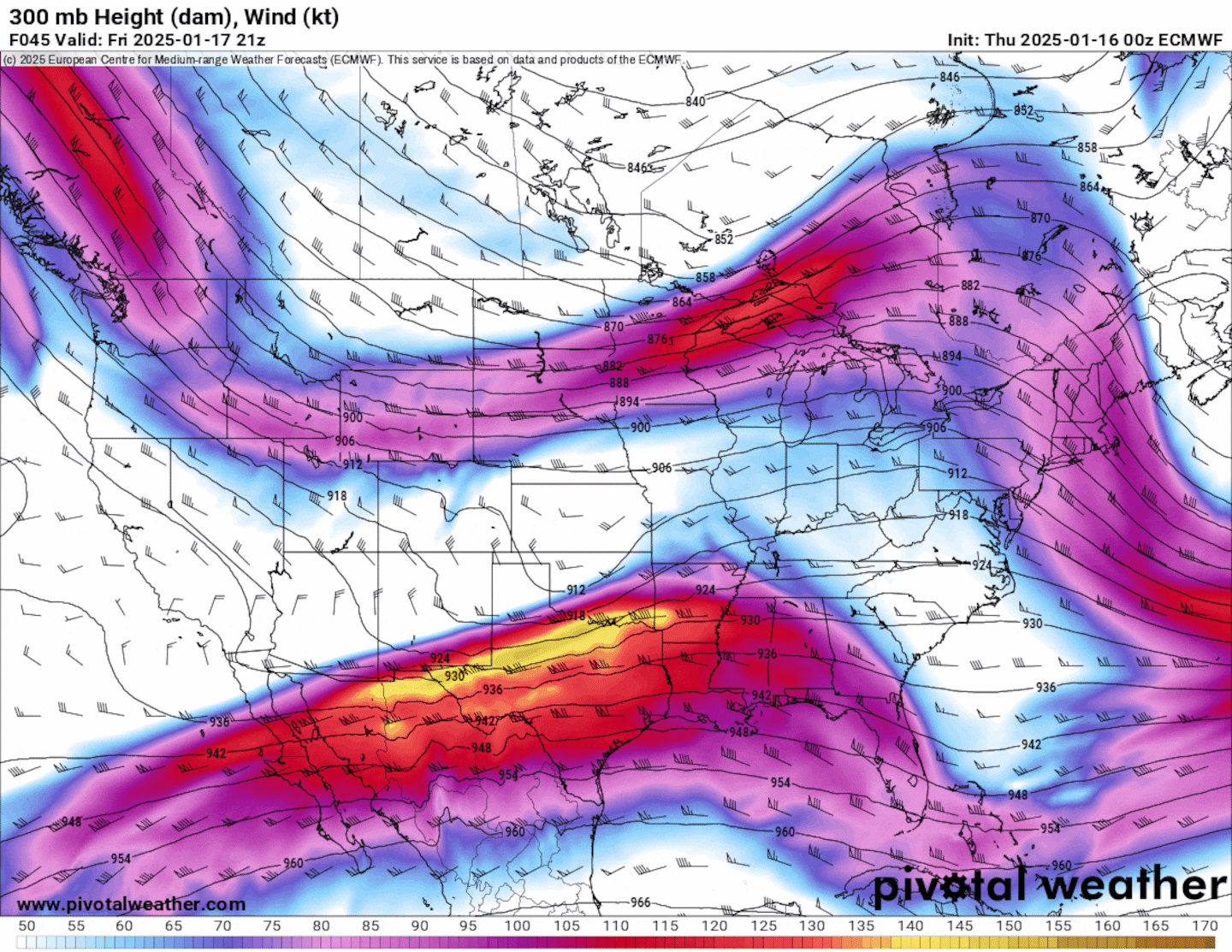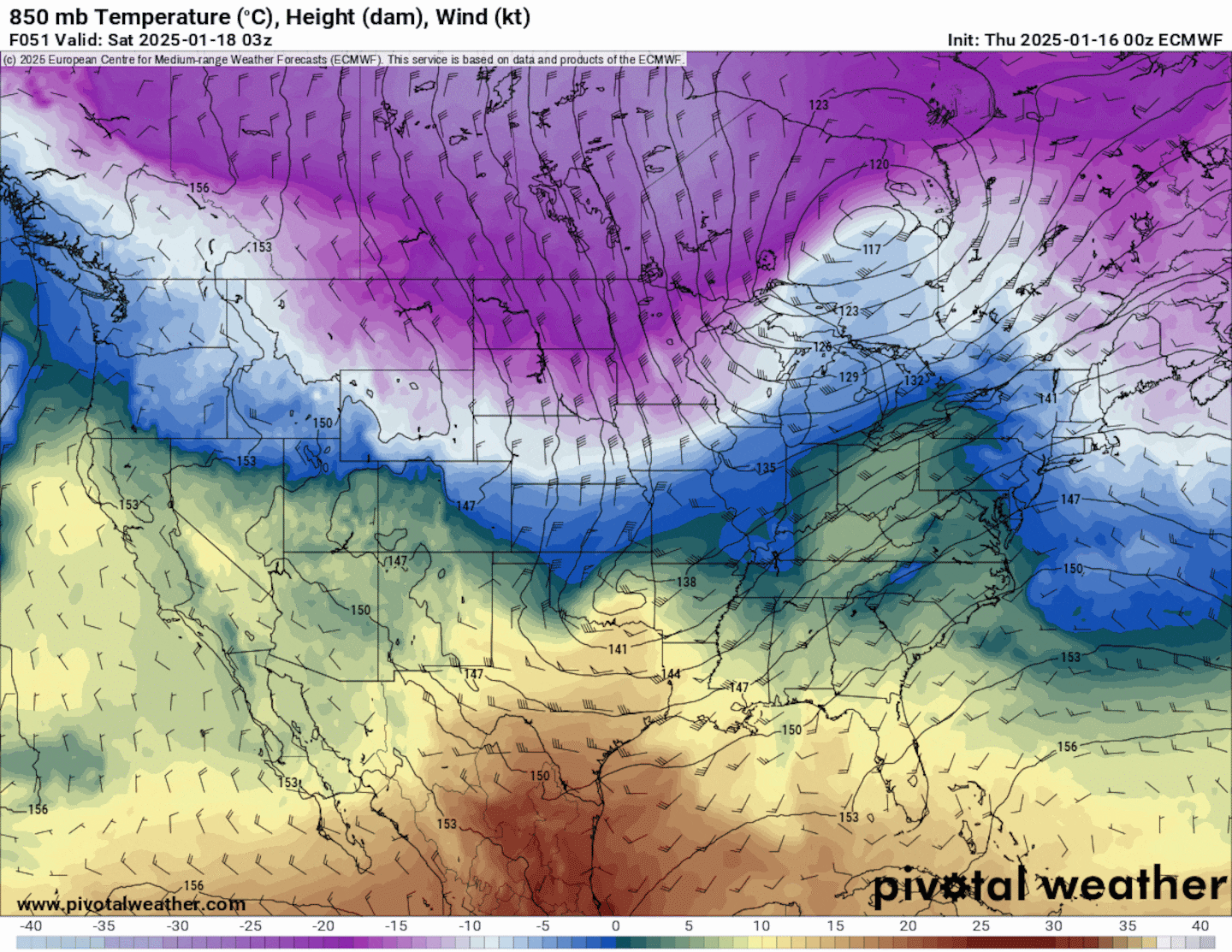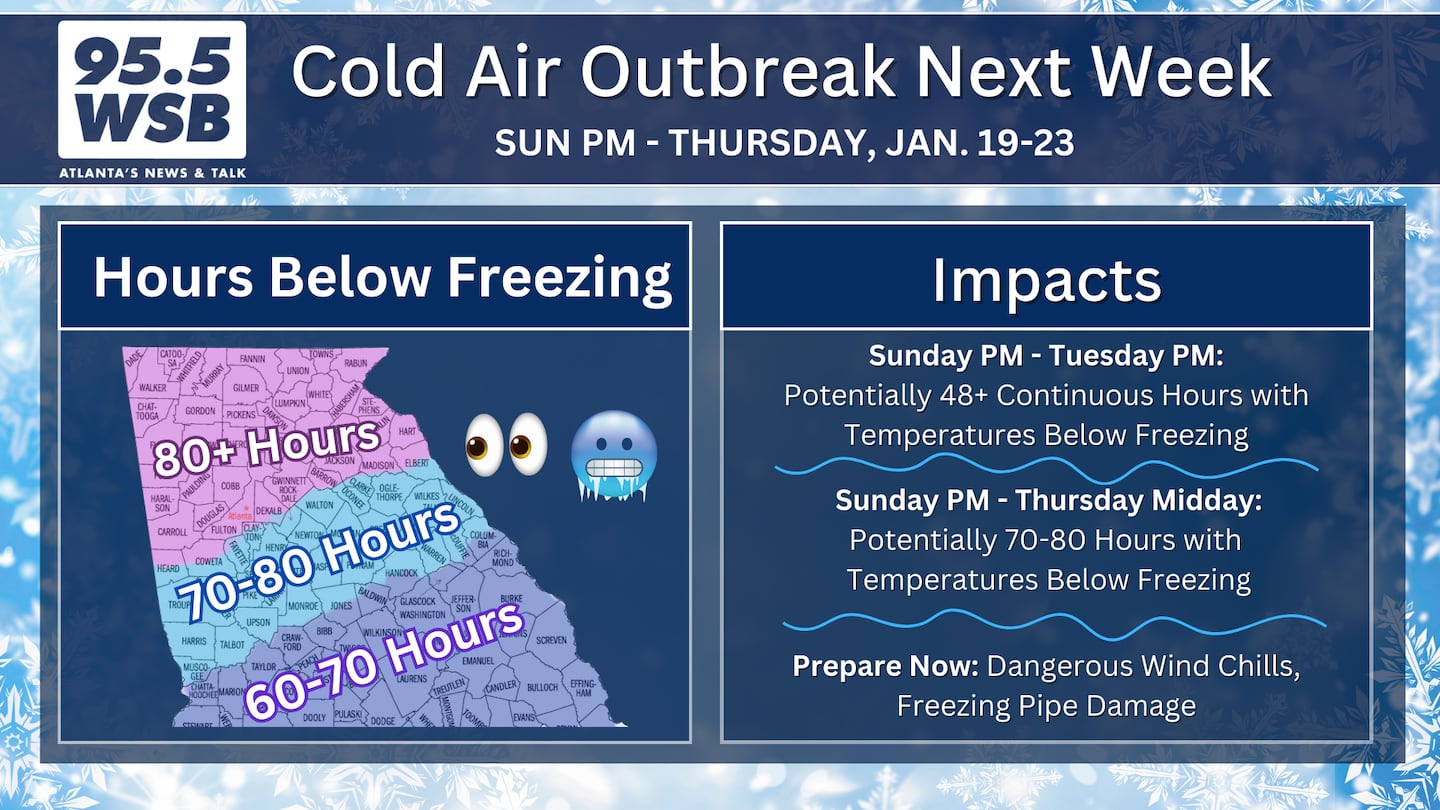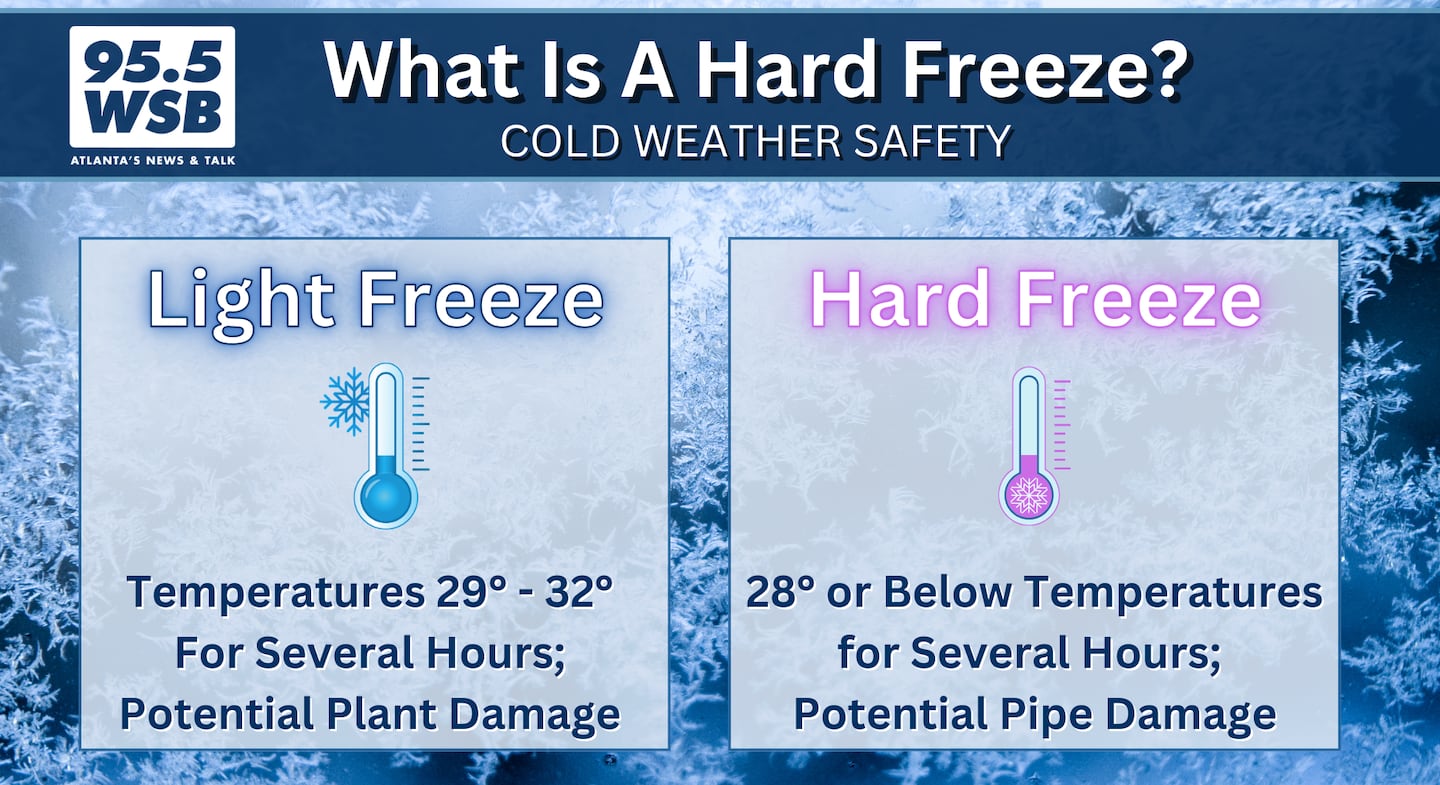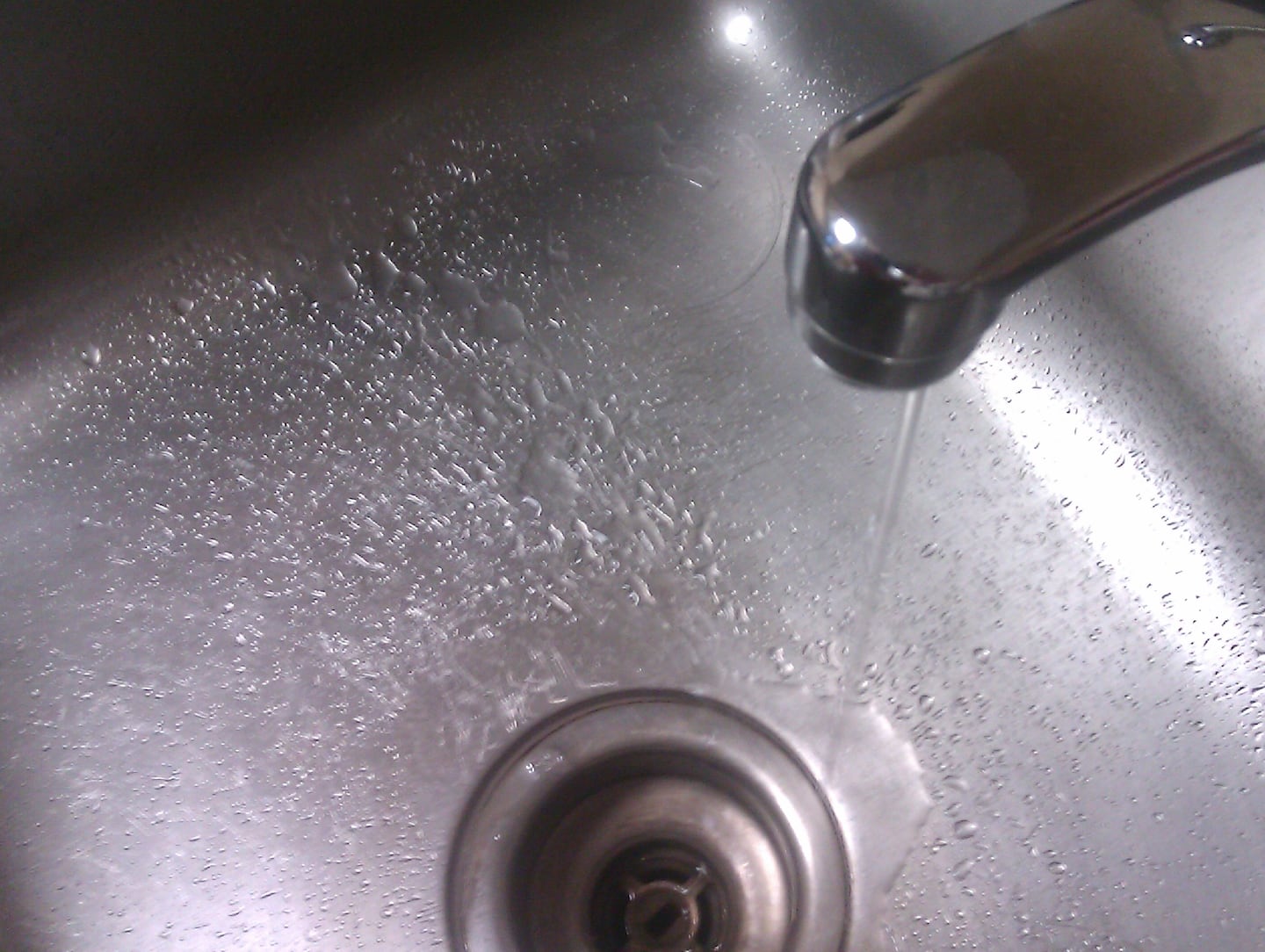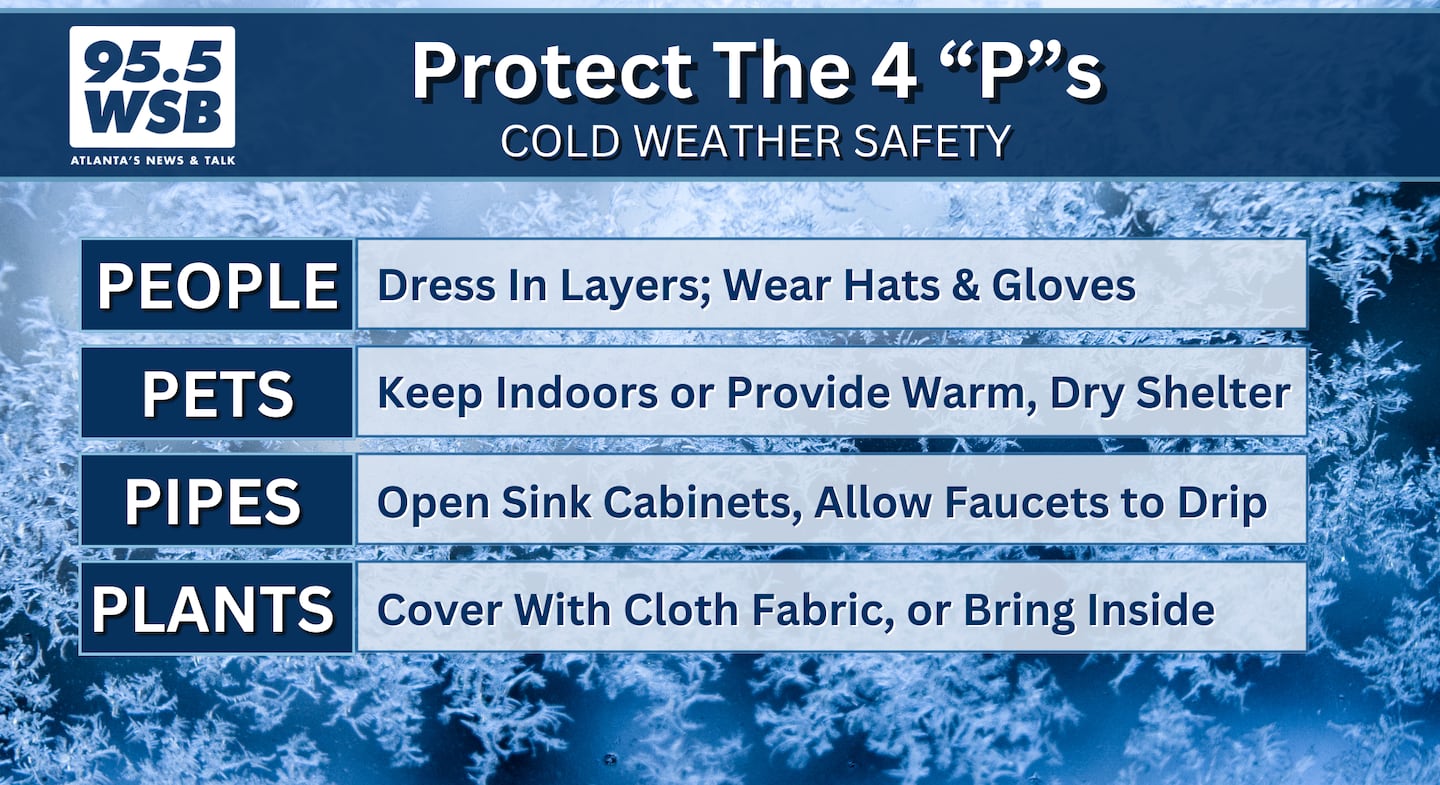Whether it snows or not next week, the Arctic Air in place is going to be *intense*:
* Sunday PM - Tuesday PM: Potentially 48+ Continuous Hours with Temperatures Below Freezing
* Sunday PM - Thursday Midday: Potentially 70-80 Hours with Temperatures Below Freezing
* Prepare Now: Dangerous Wind Chills, Freezing Pipe Damage
In meteorology, the term Cold Air Outbreak (CAO) describes a very large and very long duration of abnormally cold temperatures across the United States. A Cold Air Outbreak can effect the Great Lakes, Great Plains, the Southeast, and the Northeast all at the same time for as long as a week.
CAOs are associated with a large dip in the jet stream, which allows the Arctic air to spill south from the North Pole to the Southeast. The animation below illustrates the Futurecast 300 millibar winds, and the ribbon of bright colors signals the jet stream.
The animation below illustrates the Futurecast 850 millibar Temperature, which clearly shows the Arctic Air spilling south. Temperatures will trend about 20 degrees below average, landing into the upper 10s for the morning hours and into the low 30s for the afternoons Monday through Wednesday.
In fact, there is a very good possibility that much of Metro Atlanta will experience actual air temperatures at or below freezing for 48+ consecutive hours between Sunday night and Tuesday evening.
Even if temperatures briefly climb above freezing Tuesday, Wednesday and Thursday, the reality is that the majority of the time frame will feature temperatures at or below freezing for next week.
For Metro Atlanta, potentially 80 of the next 100 hours will feature temperatures at or below freezing.
What’s the Big Deal About a Hard Freeze?
A hard freeze is defined as temperatures at or below 28 degrees for an hour or more. Hard freeze conditions can damage crops, landscaping, and outdoor plants, but these frigid temperatures can also produce possible damage to your home.
You may often see or hear the advice of dripping your faucets when temperatures dip below freezing this time of year.
I talked with 95.5 WSB Radio Home-Fix-It Show host Dave Baker to find out how a small stream of water may save you thousands of dollars in damage.
“We drip our faucets for a couple of reasons: Running water freezes more slowly than still water. The water that is just sitting in your pipe is going to freeze much faster than if you have a flow.”
“Another reason is because -- as water freezes, it expands. With your water dripping, that means the faucet is open. If the water freezes in your pipe and it starts expanding, and your faucet’s open, it’s got a place to shove all of that water that is still in the pipe outwards.”
“If your faucet is closed and the water freezes, it starts expanding. Now it’s got nowhere to go -- it’s blocked on this side, it’s blocked on that side -- which means your pipe is just going to burst, at some point.”
“If your pipes are exposed to wind or are in the crawlspace, if they are on the outer part of your house, it could be exposed to a little more wind -- that will make you want to drip your faucets sooner.”
“It’s better to drip your faucets than to wake up with broken faucets. It’s a mess.”
Monitoring the 4-Ps: Pipes, Pets, Plants, and People
Frigid temperatures pose a great risk to the 4-Ps, and it’s best to mitigate cold-weather impacts as early as possible.
- People: Anyone working outdoors will need to monitor for both frostbite and hypothermia. In addition, very young and very elderly people are more susceptible to extreme temperatures. Individuals with circulatory issues will also need to check for cold fingers, toes, ears, and nose, since these areas may freeze due to poor heat circulation within the body.
- Pets: Even with a fur coat, animals are susceptible to cold temperatures. Do not leave pets outdoors when the temperatures drop below 32 degrees -- they can suffer from frostbite, or even succumb to hypothermia. Make sure adequate shelter is provided for outdoor pets and animals.
- Pipes: Let the faucets drip in both the hot and cold water taps as soon as possible, continuing into late Thursday morning. Running water takes longer to freeze over compared to still water, and you may prevent thousands of dollars in frozen pipe damage by allowing the faucet to drip. Also open the cabinet doors to allow warmer air to flow around the pipes. Make sure garden hoses are disconnected from your home as well.
- Plants: Plants that are not cold hardy will need to be covered and protected.
Share Your Temperature Reports With Me!
Facebook: Christina Edwards WSB
Instagram: ChristinaWSBwx
Twitter: @ChristinaWSBwx
TikTok: @ChristinaEdwards955WSB
©2025 Cox Media Group

